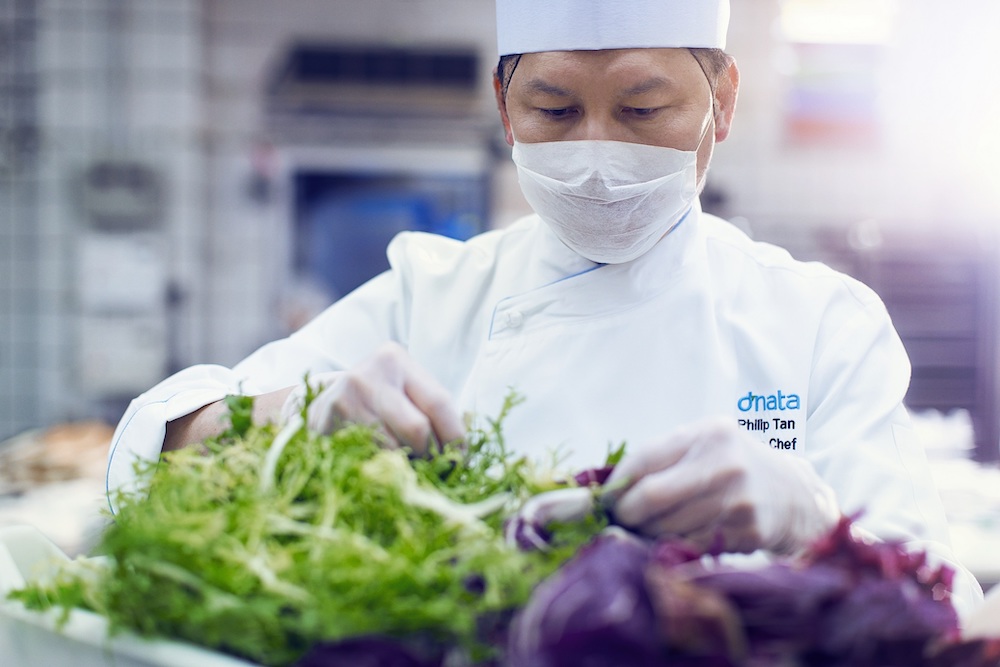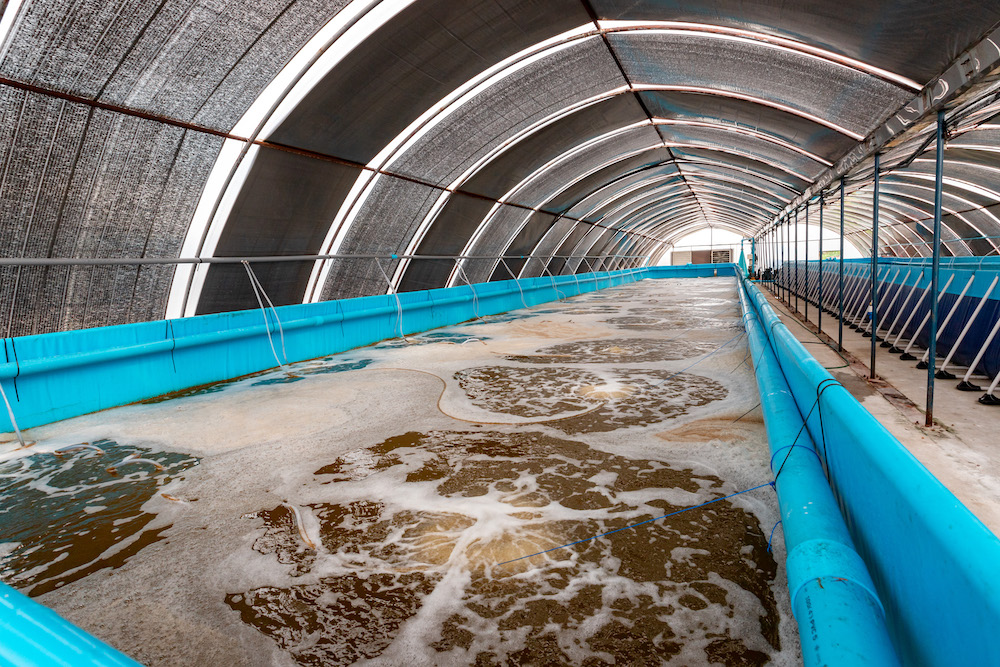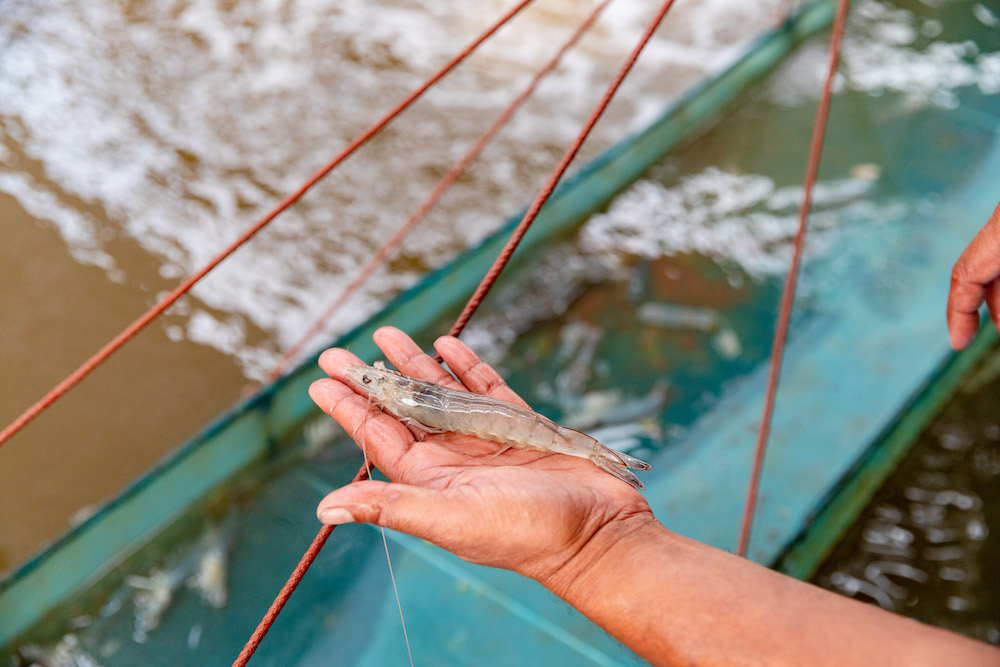dnata's plans to waste no more
This is a special feature from PAX International's June 2021 Asia-Pacific digital edition.

Operating at full capacity, dnata’s operation in Singapore produces hundreds of kilograms of food waste that will now be used by Blue Aqua
Before the COVID-19 pandemic, the Singapore catering unit of dnata was disposing of approximately 500 kilograms of food waste per day. What to do with it had the company attending industry forums and seeking out solutions.
This spring the caterer began the first steps to find a home for the waste, with some of it making its way into bellies of several species of fish and crustaceans.
The partnership that will make it all possible was announced at the beginning of May, in the form of a Memorandum of Understanding (MOU) between dnata and a fish farm called Blue Aqua Food Tech. Through the partnership, Blue Aqua will “upcycle” organic material generated by dnata’s catering and ground handling operations, turning it into aquafeeds.
The “insect meal” created by the food waste will be distributed to Blue Aqua’s fish and shrimp farms in Singapore. The leftovers from dnata go through a conversion process that transforms them into insect protein, which is fed to the company’s aquaculture livestock. Compared to traditional protein, the insect protein has a low land, water and carbon footprint.
The partnership will also supply Singapore’s farmers with sustainable access to domestically produced animal feed to help ease their reliance on imports.
In Singapore, Blue Aqua raises white shrimp, black tiger shrimp, jade perch, hybrid grouper, threadfin and red snapper. “Our indoor farms are zero water exchange and zero waste,” says Nathalie Lim, Vice President of Marketing for Blue Aqua.

Insect meal made from dnata food waste will be fed to shrimp in farms like this
The process has the blessing of the Singaporean government, which like the rest of the world, is keen to see its businesses develop more sustainable practices. Government offices like the Singapore Food Agency are releasing funds in the form of grants for agri-business productivity projects; and Blue Aqua is lining up with other companies to apply for the available monies. It is also in line with Singapore’s vision of being a ‘Zero Waste Nation’, which means the recycling rate must be increased to 70 percent.
Due to the drop in flights, dnata is currently left with approximately 30 kilograms of food waste at the end of a day, says Dirk Goovaerts, dnata’s Regional Chief Executive Officer for Asia Pacific.

White shrimp is one of several species that are raised in Blue Aqua fish farms
“At the next phase, we also plan to investigate what organic waste can be recycled from passenger aircraft galleys and our lounges, too,” he tells PAX International.
The May signing of the MOU is a starting point to a “zero waste” master plan between the two companies. The process comes full circle as dnata has added Blue Aqua to its list of suppliers to purchase locally farmed seafood for its catering operations.
The CEO and founder of Blue Aqua is Dr. Fashad Shishehchian. Blue Aqua has a presence in 14 countries. The company opened its Broodstock Production Center in Singapore in October of 2017. In addition to business activities, Blue Aqua trains vet-tech students from Temasek Polytechnic for hands-on experience and to learn industry skills.
Singapore imports more than 90 percent of its food, and generates up to 774,000 tons food waste per year. Only 20 percent for that is currently recycled. The city/state has a goal to produce up to 30 percent of its food domestically by 2030. With this mandate, aquaculture will play an important role in the future of Singapore's food security.
“Blue Aqua has been a strong advocate for sustainable and practical farming since its inception,” said Shishehchian, in the announcement of the MOU. “This partnership with dnata is a perfect fit. We are excited to grow our efforts in food technology to develop a circular economy in aquaculture globally through our network, starting in Singapore.”

